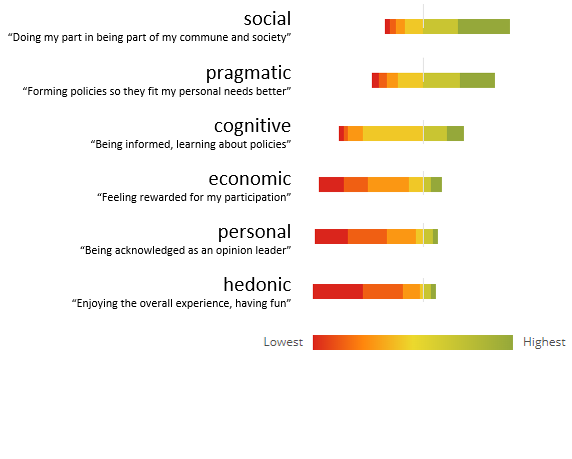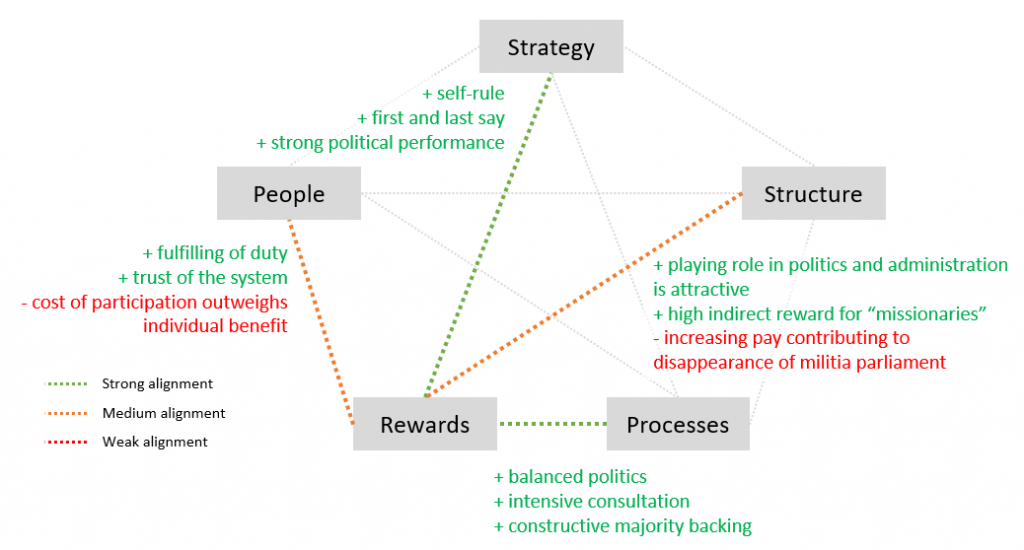This is the final post looking at an organizational analysis of Swiss direct democracy.
Rewards are meant to align the goals of the people with the goals of the organization, and provide motivation for completion of the strategy. So why would anyone want to participate in a direct form of democracy? Well, the four roles of citizens (voter, committee member, missionary, parliament member) come with a few direct and some indirect rewards.
Rewards for voters and committee members are mostly indirect. Swiss political expert Wolf Linder even argues that the cost of participation in direct democracy outweighs expected individual benefits. Research could not be identified around this topic, but a survey conducted for the topic of this blog attempted to identify perceived benefits of SDD. Results show that citizens value social, pragmatic and cognitive benefits highest. (Remember the co-creation experience scale used for measurement?)

The ‘missionary’ role’s indirect reward is the crucial political exposure, experience, and opportunity for progression within a party. So participation here is a bit like personal branding, and carries its own reward.
Parliament members are the only ones to receive a direct reward: a salary. Remember, Swiss parliament members are only part-time politicians! But the salary they receive has increased in the last decade, making their job more of a full-time politician job. This in the end weakens ‘militia parliament.
Finally, above rewards are backed up by a strong performance of the state. It ranks 3rd least fragile state globally, scores 92.9% on the World Bank’s Political Stability and Lack of Violence index, and Swiss have the highest trust in governance of OECD countries, with a growing trend.
Even innovation indexes take political system into account in their scoring, and Switzerland ranks high here as well. It achieves #1 spot in Global Innovation Index, and is rated as an Innovation Leader on the European Innovation Scoreboard
Overall, we get a mixed picture when it come to alignment of rewards with the other aspects of the organization that is the Swiss Direct democracy. Just as the literature of co-creation has not yet fully figured out measurement and rewards, neither has the practice of Swiss direct democracy.





















